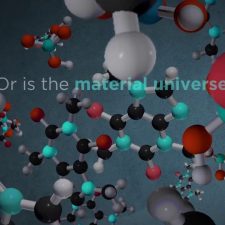In extreme King James Only-ism, the bible-believing Christian pins all authority on the King James Version (KJV) bible, turning a wary eye toward the “new age” versions, which usually includes anything other than the KJV, but specifically:
- New International Version (NIV)
- New King James Version (NKJV)
- English Standard Version (ESV)
- New American Standard Bible (NASB)
- Revised Standard Version (RSV)
- New Revised Standard Version (NRSV)
- New Century
- And more
The King James Only View
KJV Only assertions include beliefs that
- The inerrant, unchanging Word of God has been preserved in the KJV which the newer bible versions have bubbled up to usurp.
- Newer versions have already shown a tendency to footnote key passages and then, in the next release, the footnotes have been removed entirely (NIV, for example.)
- Copyright law dictates new bible versions must be changed “substantially” in order to be considered new and marketable, forcing a conflict of interest (accuracy versus money.)
“To be copyrightable, a derivative work must be different enough from the original to be regarded as a ‘new work’ or must contain a substantial amount of new material. Making minor changes or additions of little substance to a pre-existing work will not qualify the work as a new version for copyright purposes.” (The Derivative Copyright Law, per Ecclesia.org)
- Newer bible versions have been derived from corrupt sources, leading to egregious omissions and alterations.
One King James Only Argument: Isaiah 14:12
In her book, New Age Bible Versions, Gail Riplinger attempts to highlight many of the errors and omissions propagated by the newer books. One example that merits mentioning is the contortion of Isaiah 14:12, where the single biblical reference to the name Lucifer is removed by the new age versions, replacing the reference with “morning star”–a title given to Jesus Christ in Revelation 22:16. King James Only opponents argue this whole passage is obviously sarcastic in tone and that “morning star” or “shining one” are “perfectly acceptable translations of the Hebrew word.” (White, The King James Only Controversy, p.180-181.)
Riplinger establishes the newer versions are taking liberties with the original Hebrew in this case. She writes:
“An examination of the original Hebrew will dispel any illusion that ‘morning star’ is an acceptable substitute for the word ‘Lucifer.’ The Hebrew is ‘helel, ben sharchar,’ which is accurately translated ‘Lucifer, son of the morning.’ The NIV and NASB give an English translation as if the Hebrew said, ‘shachar kokab, ben shachar‘ or morning star, son of the morning (or dawn). Yet the word for star (kokab) appears nowhere in the text. Also ‘morning’ appears only once, as the KJV shows, not twice as new versions indicate. The word kokab is translated as ‘star’ dozens of other times by NIV translators; morning or dawn is likewise used hundreds of times. New version editors know boqer kokab is ‘morning star’ since it is used in Job 38:7. If God had intended to communicate ‘morning star’, he could have repeated hit here. The word he chose, helel, appears nowhere else in the Old Testament, just as Lucifer appears nowhere else.” (Riplinger, p.42-43.)*
According to Revelation 13:4, Satan’s ambition to be worshiped will be realized: “and they worshiped the dragon.” As Riplinger points out, for this to happen, the world will have to be confused on Satan’s true identity. As in the Garden, this begins with corrupting God’s Word, which–as a King James Only supporter–Riplinger eagerly defends.
Against King James Only
Unfortunately for the KJV Only cause, that eagerness turns overzealous in places and Riplinger–like many vocal KJV Only advocates–falls into a number of traps and errors along her way. One example is when she attempts to use acrostic algebra to reduce (NASV-NIV)-AV=X into SIN=X. Even her use of NASV disrupts her own pattern of referring to the version as NASB everywhere else in her book. Still, if even 50 percent of Riplinger’s work is accurate, it becomes impossible to refute there is a corruption of God’s Word taking place.
However, the KJV itself is not without its errors. For instance, KJV Only advocate Dr. Terry Watkins asserts the ESV has removed the word “hell” 40 times and removed the words “devil” or “devils” 83 times. While this can and should be alarming to anyone looking to rest in the truth the Bible is God-breathed, Watkins leaves out the fact that the ESV largely corrects the term “hell” to the words that actually show up in the original Greek, Aramaic and Hebrew: Hades, Sheol and Gehenna. The KJV Only argument is that most the public won’t be familiar with the terms Hades, Sheol and Gehenna, however this is certainly not a sound argument. Are we to bend the Scripture to the ignorance of the people (as many have tried) or are we to elevate the people to the level of God’s Word? (Of course, this argument could be pushed to the literal end and lead us to abandon all English versions since the Bible was originally written in ancient Hebrew, Greek and Aramaic.)
Another example where opponents to KJV Only state the KJV translation is inferior is in Genesis 50:20. On page 287 of Dr. James White’s detailed analysis, The King James Only Controversy, he compares the passage as it appears in the KJV and in the NASB:
KJV
20 But as for you, ye thought evil against me; but God meant it unto good, to bring to pass, as it is this day, to save much people alive.
NASB
20 As for you, you meant evil against me, but God meant it for good in order to bring about [a]this present result, to preserve many people alive.
Here is how the actual passage looks in Hebrew according to the Masoretic text:

For reference, the definition from Strong’s Concordance:
2803 chashab khaw-shab’ a primitive root; properly, to plait or interpenetrate, i.e. (literally) to weave or (gen.) to fabricate; figuratively, to plot or contrive (usually in a malicious sense); hence (from the mental effort) to think, regard, value, compute:–(make) account (of), conceive, consider, count, cunning (man, work, workman), devise, esteem, find out, forecast, hold, imagine, impute, invent, be like, mean, purpose, reckon(-ing be made), regard, think.
The word in question here is chashab (![]() ) and it is clearly repeated in the Masoretic example. (Notice how accent marks change between the two instances.) White tries to make the case that it would make more sense to mirror the intent of the original author and use the same word in repetition. To that end, it might. As he does with regularity, White stops short of diving into actual textual analysis to explain the context surrounding both usages to reverse engineer the KJV authors’ decisions. He may be quite right in his assertion, but he–like Riplinger whom he sarcastically attacks–often expects the reader to swallow his sortie of arguments whole.
) and it is clearly repeated in the Masoretic example. (Notice how accent marks change between the two instances.) White tries to make the case that it would make more sense to mirror the intent of the original author and use the same word in repetition. To that end, it might. As he does with regularity, White stops short of diving into actual textual analysis to explain the context surrounding both usages to reverse engineer the KJV authors’ decisions. He may be quite right in his assertion, but he–like Riplinger whom he sarcastically attacks–often expects the reader to swallow his sortie of arguments whole.
Conclusion: King James First
Many intelligent people stand committed on both sides of the KJV Only issue. Both sides have done their homework. For every superstitious, paranoid KJV Only advocate, there seems to be an equally apathetic, callous new age bible advocate. Both sides lean to intellectualism and textual criticism to make their points, however neither side is faultless when advancing their perspectives through their prejudices. To a serious student, it becomes painfully apparent that even learning ancient Greek and Hebrew won’t fully help you discern truth; even those experts disagree!
Still, if half the KJV Only case is true, it remains irrefutable there is an erosion game being played on God’s Word. Inversely, if half the new age bible defense is true, the pattern of corruption entering the newer bibles still isn’t satisfactorily addressed.
And so, this student is landing on a position of KJV First; not KJV Only. I can acknowledge we have many more supporting documents and copies on which to base solid translation work than the Hampton Court Conference had during their work in the early 1600’s. The KJV could be made more accurate, certainly. At the same time, I can look at the assertions by the KJV Only camp and recognize there is absolutely a targeted devolution (alt. devil-ution) occurring in the contemporary versions. If we look at the Enemy’s attacks in the Garden and on Jesus in the desert, it is plainly evident the Enemy favors the tactic of undermining God’s Word.

* I found it interesting to discover for as much as White attacks Riplinger in his book The King James Only Controversy, his 2009 revision glosses past Riplinger’s more thorough analysis of the Hebrew text in this case. Certainly, if her textual criticism on Isaiah 14 was errant, he would have been sure to dismantle it.
References
Anthony, Richard. Bibles are only Milk. Ecclesia.org. Retrieved from http://www.ecclesia.org/truth/bibles.html
Genesis 50:20. Blue Letter Bible. Retrieved from https://www.blueletterbible.org/kjv/gen/50/20/t_conc_50020
McElroy, Jack. Which Bible Would Jesus Use? AV1611.com. Retrieved from
http://av1611.com/kjbp/articles/mcelroy-nkjv.html
Riplinger, G.A. New Age Bible Versions. 1993. AV Publications Corporation.
Strong, James. 2010. The New Strong’s Expanded Exhaustive Concordance of the Bible. Thomas Nelson.
Watkins, Terry. The Fruit of the ESV. AV1611.com. Retrieved from
http://www.av1611.org/kjv/ESV_Fruit.html
White, James. The King James Only Controversy. 1995. Bethany House.
White, James. September 1, 1996. New Age Bible Versions Refuted. Alpha and Omega Ministries. Retrieved from http://www.aomin.org/aoblog/index.php/1996/09/01/new-age-bible-versions-refuted/
Wikipedia.org. List of Bible verses not included in modern translations. Retrieved from https://en.wikipedia.org/wiki/List_of_Bible_verses_not_included_in_modern_translations













